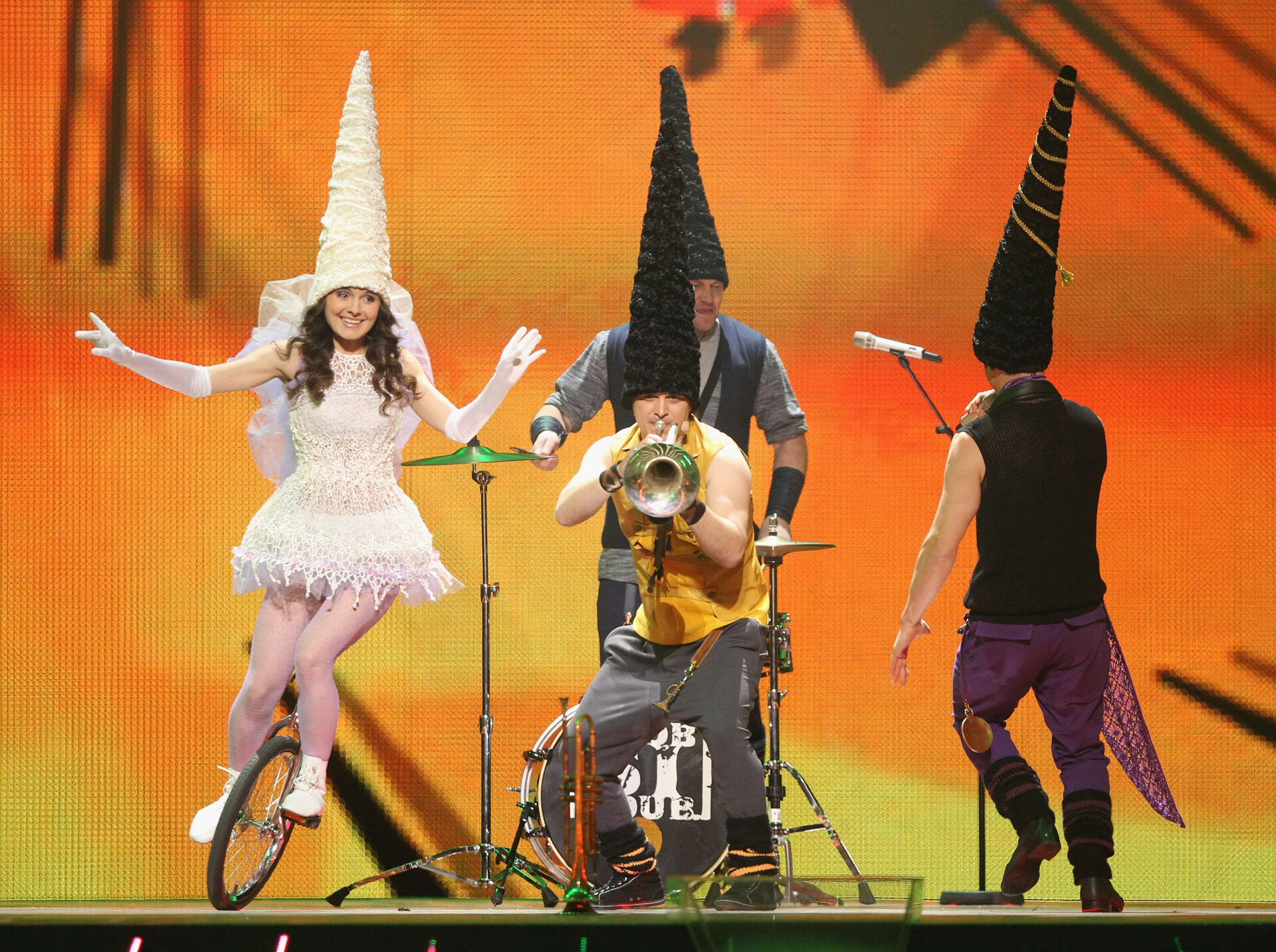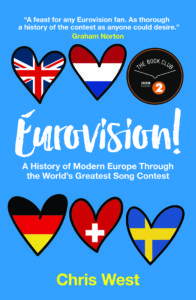‘We are circus ringmasters,’ wrote Dadaist poet Tristan Tzara back in 1917, ‘and can be found whistling among the winds of fairgrounds, convents, prostitutions, theatres… While we put on a show of being facile, we are actually looking for the essence of things… We [celebrate] the interweaving of… all contradictions and irrelevancies: LIFE.” I think Tzara would have loved the Eurovision Song Contest.
You have to be a bit of a Dadaist to get the best out of Eurovision. And you probably have to watch the semi-finals, on the Tuesday and the Thursday before the Saturday final (May 9 and 11 this year). The really unusual stuff can fail to get past the judges (and the public vote) here.
Rambo Amadeus, for example… His real name is Antonije Pušić, and he is – well, all sorts of things. A kind of Montenegrin Frank Zappa, he has hosted erotic quiz shows and given a concert where he ‘played’ twelve concrete mixers, but he also wrote a musical score to go with Fritz Lang’s Metropolis and a cadenza for Mozart’s piano concerto No. 24 in C Minor. He has performed all round the former Yugoslavia, eager to rip down barriers between the peoples of that country with his anarchic performance art. In 2012, he produced Euro Neuro for Eurovision, a piece sort-of about the continent’s financial troubles – half way through, banners were unfurled about the crisis (by the end of the song, one of the backing dancers had been wrapped up in one of the banners).
Eastern Europe – Tzara was born in the Romanian town of Moinești – seems to be particularly good at injecting inspired lunacy into Eurovision. I look forward with huge interest every year to see what Moldova has cooked up for us, and most years I’m not disappointed. (Moinești is about 100 miles from Romania’s border with Moldova). Their 2011 So Luckywas perhaps the barmiest – the musicians wore huge pointy hats, and half way through, a fairy-like lady (with her own pointy hat, of course) appeared on a unicycle playing a trumpet. In 2013 Aliona Moon had a skirt which expanded, like a hovercraft preparing to take off, lifting her up into the air. And, of course, there’s the ‘epic sax guy’ (2010) from Sunstroke Project (they’re back this year – yippee!)
At the same time, Moldova usually gets touches of its musical tradition into the songs – the entries aren’t simply exercises in the Dadaistic but ways of presenting a small, economically struggling nation as somewhere fun and interesting. For many Eurovision fans, they succeed brilliantly.
Austria is now best known in Eurovision-land for Conchita Wurst’s mighty 2014 win. Before that, it had a Moldova-like reputation for entering odd songs – maybe the vibes of the original Dadaists’ haunt, Zurich’s Cabaret Voltaire, had floated over the Swiss border. It was the first country to come last in the contest, a feat it pulled off in 1957 (no places apart from the winner were announced in the first, 1956 contest). Two years later, it produced the contest’s first full-on novelty song. The Imperial and Royal Calypso from Vienna featured calypso, swing and yodelling. (Yodelling is making a comeback – this year, Ilinca Băcilă , from – where else? – Romania will be doing it.) Decades later, it was still at it: its 2003 entry, from Alf Poier, was a left-field protest at our treatment of animals – we kill and eat them, then get all sentimental about them.
Talking of Austria and protest, a couple of songs have protested against Eurovision itself. Austria’s Schmetterlinge (Butterflies) bemoaned the commercialism of the music biz and sent up the corniness of many Eurovision lyrics at that time with >Boom Boom Boomerang in 1977. Thirty-one years later, Ireland, once invincible behemoths of the contest, produced their sulky (but danceable)Irelande Douze Points courtesy of Dustin the Turkey. It contains Eurovision’s only fart joke. Schmetterlinge got a polite round of applause and second last place. Dustin got booed, not because of the fart but because of the snarky references to Eastern Europe in the last verse. Maybe the best way to satirize Eurovision is with affection, as the Swedish hosts did in 2016.
Of course, if you really want to find eccentricity, dig deeper, into the national heats. Belarus, despite having no traditional links with Dada, is a goldmine. Sadly, Vitaly Voronko won’t be won’t be performing on the Eurovision stage this year, so the mass audience won’t enjoy the twelve-foot polar bear. Last year, audiences missed out on even bigger treats – check out these dancing zombies, and don’t click away half way through this classic from Persona Non Grata. He’ll be back – or so I hope.
Belarus is, of course, a place where freedom of political expression is not encouraged. Its Eurovision entrants neatly sidestep this, though zaniness. We don’t just laugh at some of the wackier ones, but with them, too.
A whole evening of Dada would probably scramble our brains. The joy of Eurovision is that it mixes it in with other aesthetic experiences. You never know quite what is coming up next. One song you like in the usual way – it moves, excites or charms. Then next is rather dull and runs out of ideas halfway through or sounds like something else, though you can’t remember quite what. Then the next is wonderfully, off-the-wall bizarre. Tristan Tzara looks down from wherever Dadaists end up, and roars approval.
Chris West is the author of Eurovision! A History Modern Europe Through the World’s Greatest Song Contest out now.





